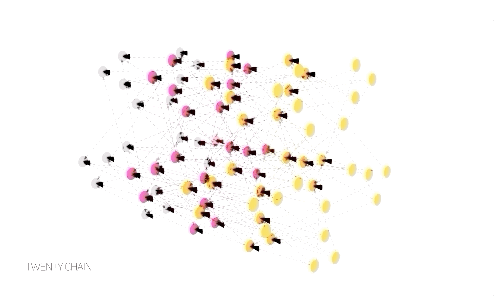
First Hybrid Blockchain Company Kadena Goes Live
Blockchain startup Kadena is launching the upcoming 15th of January (2020) the industry’s first hybrid blockchain. Formally called Chainweb, Kadena’s blockchain is a proof-of-work (PoW) network.
The company was founded by Stuart Popejoy and Will Martino after leading JP Morgan’s blockchain group. Stuart Popejoy, was the former blockchain lead at investment banking giant JPMorgan, and Will Martino, the lead engineer for JPMorgan’s blockchain prototype, Juno.
Kadena’s project was first unveiled in 2016. They went on to raise $15M to create a hybrid blockchain platform that leapfrogs existing smart contract blockchain solutions like Ethereum and solves the proof of work scalability issues of Bitcoin.
A real hybrid blockchain offers the best of both worlds, connecting public and private blockchains seamlessly without singling out any specific set of users or sharing confidential information. It took three and half years of product development to get to this point.
Kadena was recently recognized by Forester as one of the most promising blockchain companies to watch in 2020. They have existing partnerships with large companies like Cosmos, Amazon, Microsoft
The technology is a massive leap forward as it enables the following advantages:
- The first scalable proof of work blockchain. Bitcoin can process 7 transactions per second. Ethereum can process 15 transactions per second. Kadena can process 750 transactions per second. They’ve solved PoW scaling by creating a braided, parallelized proof-of-work consensus mechanism.
- Mining without the environmental impact. As you’re aware, both Bitcoin and Ethereum are energy intensive. To mine Bitcoin each year requires 66.7 terawatt-hours per year or enough to power 10 million homes. Kadena’s public blockchain is just 1/50th of that amount through their unique braided architecture.
- Simplified smart contracts with a new language called Pact. Pact is human-readable and simple—yet powerful enough to code complex contracts and multi-party transactions. It is a next generation smart contract language for everyone and billion dollar companies like Cosmos and Polkadot have provided grants to bring it into their ecosystems.
- Solves the ‘CryptoKitties problem’ of DApp network congestion. Kadena’s blockchains have the unique ability for to automatically silo viral applications to certain chains while the rest of the network runs unencumbered in parallel.
- Full compatibility with public & private blockchains. Kadena is designed to work within the existing crypto ecosystem and to work with, instead of attempting to replace, everything. Kadena envisions a world of thousands of blockchains and APIs all talking to one another including bitcoin, ethereum, etc.
- A safer and more secure blockchain. Kadena uses an advanced technology known as Formal Verification where all code is checked and mathematically proven to ensure contracts/dApps are free of critical bugs. Formal verification systems is currently used in mission critical environments like nuclear power plants and space autopilot systems. It will eliminate vulnerabilities that have resulted in the loss of hundreds of millions of dollars, as seen in the DAO hack, Parity Wallet multisig bug, and other high profile smart contract failures.A hybrid blockchain can usher in the creation of a “sharing economy” among businesses like nothing that came before. A public and private blockchain working together can combine a traditional back office’s capabilities with logistics and automated contract enforcement. An example given by Kadena, is the fashion startup Rent the Runway (RTR) that has the largest dry cleaning facility in North America in order to service all their rentable formalwear. RTR already has an economy of scale when it comes to dry cleaning. With a smart contract on a hybrid blockchain, RTR could offer up their excess dry cleaning capacity to small or medium-sized businesses at affordable rates. This could happen through selling a public token that represents a full door-to-door dry cleaning lifecycle (stored on a private blockchain).

IntelligentHQ Your New Business Network.
IntelligentHQ is a Business network and an expert source for finance, capital markets and intelligence for thousands of global business professionals, startups, and companies.
We exist at the point of intersection between technology, social media, finance and innovation.
IntelligentHQ leverages innovation and scale of social digital technology, analytics, news and distribution to create an unparalleled, full digital medium and social business network spectrum.
IntelligentHQ is working hard, to become a trusted, and indispensable source of business news and analytics, within financial services and its associated supply chains and ecosystems.










